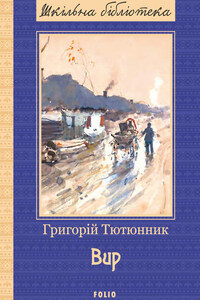CHAPTER XXXII
SALMON AND COWS
Luncheon that day at Carlingford House was a quiet, subdued meal. Edith Paulton, who was very small and vivacious, better-looking than Madge, and distinguished by shrewd discontent rather than the amiability which radiated from her elder sister, was the only one at the table that made an effort at being sprightly. Although she was not unsympathetic, she had a much more keen appreciation of her own annoyances and troubles than those of others. She took great liberties with her good-natured father and mother, and treated her brother as if he were a useless compound of slave, fool, and magnanimous mastiff. She was by no means wanting in affection, but she hated displays of sentiment, and felt desperately inclined to laugh on grave occasions.
That day, when the two girls left the back room, they went straight to Madge's, where they talked over the arrival of Jerry O'Brien, for whom Edith strongly suspected Madge had a warmer feeling than friendship, and who, she felt morally certain, greatly to her secret delight, was over head and ears in love with Madge. The only human being in whom she had infinite faith was Madge. She did not consider any hero or conqueror of history good enough for her sister. To her mind, there was only one flaw in Madge: Madge would not worship Madge. Madge thought every one else in the world of consequence but herself. Edith thought Madge the only absolutely perfect person living, or that ever had lived-leaving out, of course, the important defect just mentioned. The younger girl had, in human affairs, a certain hardness and common-sense plainness which shocked the more sensitive sister. For instance, she could not see anything at all pathetic in Mrs. Davenport's situation.
Before the bell rang for luncheon, she said to her sister:
"I can't for the life of me see what is so terribly melancholy in Mrs. Davenport's case. I think she got out of it rather well. She didn't care anything for that dreadful old man who poisoned himself out of some horrid kind of spite. She hasn't been put in prison, and he left her a whole lot of money. So that as she isn't exactly an old maid, or a grandmother, she can marry any other horrid old man she likes. Oh, yes; I know she's very beautiful, and what you call young, Madge. She's not fifty yet, I suppose. Every woman is young now until she's forty or fifty; and as to men, they don't seem to grow old now at any age. As long as a man doesn't use crutches, they say he is in the full vigour of manhood-that he's not marriageable until he's gray, and bald, and deaf of one ear, or can't read even with glasses. I suppose father will make her stop for dinner. I thought I'd laugh outright when I saw him go to her and call her 'child.' Child! Fancy calling a widow child! If ever he calls me child again, I'll tell him, as far as I know, I have not buried any husband yet. But, Madge, if she does stop for dinner, I'm not going to sit there and learn the very latest thing in the manners of widows. I'll go out for a walk after luncheon. Do you know, I think Jerry O'Brien is half in love with this beautiful widow! I'll ask him to come with me, I will; and you, good-natured fool, may sit within and catch the airs and graces of early widowhood, though I don't think they'll ever be of any use to you. You're certain to die an old maid. Alfred can't keep his eyes off her. It's a pity we haven't that nice Mr. Blake here-her old sweetheart. There, Madge, I don't mean a word I say, especially about Jerry O'Brien. I know he's madly in love with me. I'm going to give him a chance of proposing this evening. We'll walk as far as the Palace, and if you get separated from us, and see me holding my umbrella out from my side on two fingers-this way-just don't come near us, and you shall be my bridesmaid, and Jerry shall give you a present of a bracelet representing a brazen widow sitting on a silver salmon. There's the bell! Madge, love, I'm not a beast, only a brute. There! – I won't be rude again, and I'll try and rather like Mrs. Davenport. She'll be a neighbour of mine, you know, when I'm married to Jerry. I think I'll call him Jer then."
After luncheon, Mrs. Paulton suggested that Mrs. Davenport should lie down, as she must be quite worn out. But the latter would not consent to this. She said she felt quite refreshed, and in no need of rest, as she had slept well the previous night-although some memory of the Channel passage was in her brain, and the sound of the railway journey in her ears.
The evening was fine. Neither Mrs. Davenport nor Alfred cared for a walk when it was suggested by Edith, but Jerry said he would like it of all things; so he and the two sisters set off down the fine, broad, prosperous-looking Dulwich Road, in the direction of the Crystal Palace.
It is proverbially a small world, and the three pedestrians had not gone many hundred yards when whom should they see but Nellie Cahill, one of the firm friends and confidantes of the Paulton girls. Before the three came up with Miss Cahill, Edith gave a brief and graphic sketch of her to Jerry, who had not had the pleasure of meeting her before. She was good-looking, good-humoured, jolly, a dear old thing, mad as a March hare, true as steel, and last, though not least, interesting to him-a fellow country-woman of his, as her name betokened.














